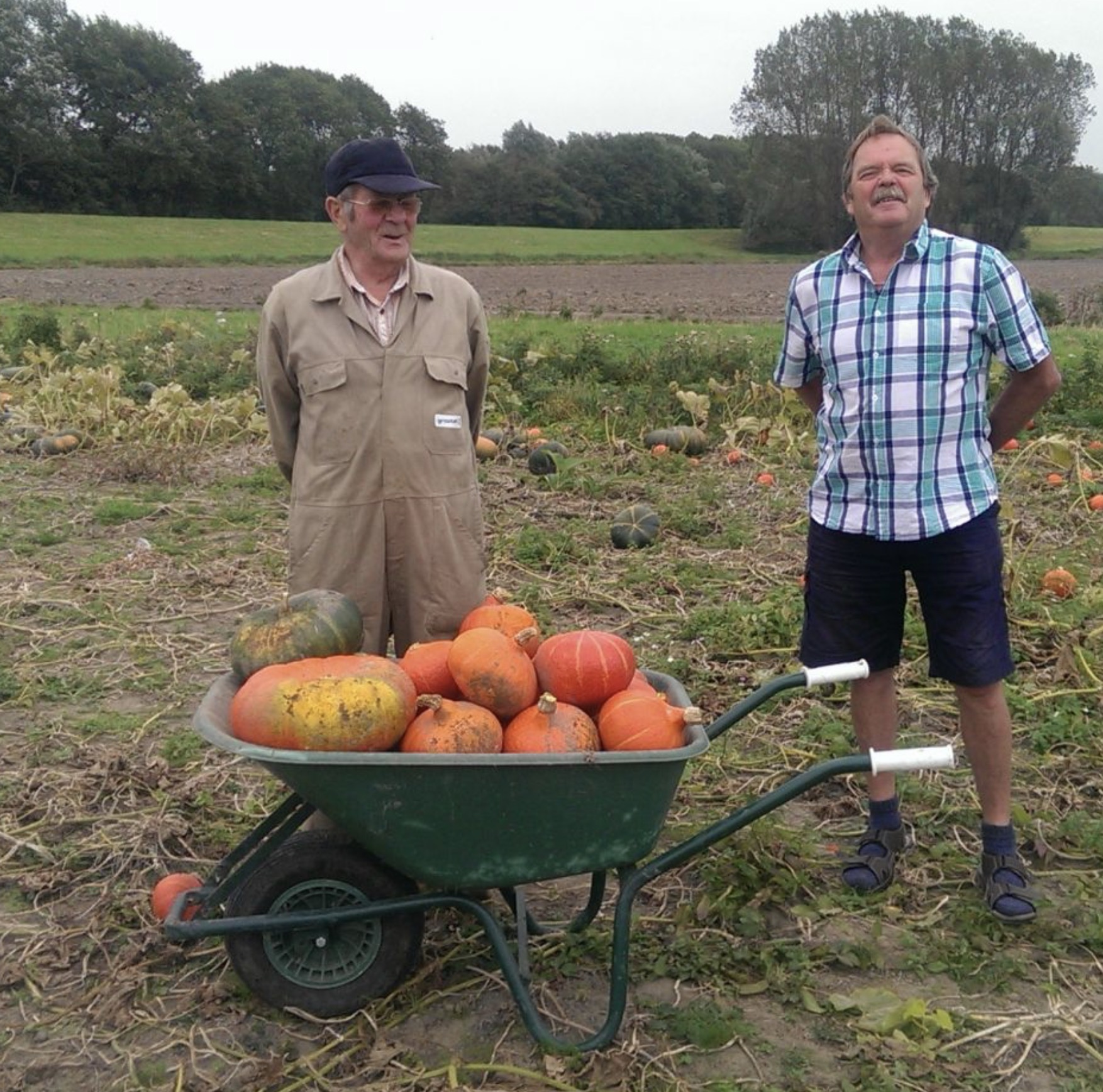
- Better Society -
- 7mins -
- 1,171 views
In the Netherlands people with dementia can work on care farms
On a growing number of Dutch ‘care farms’ ageing people get to tend livestock, harvest vegetables, socialise and make their own decisions.
Meaningful, fulfilling work
For many people, the later years of life are spent in an institutional setting, their daily choices and activities determined by what they can no longer do. But in the Netherlands, those who develop dementia are offered a different path forward: meaningful, fulfilling work on farms, where they can stay active while continuing to contribute to society. Care farms are extensively used in the Netherlands as an alternative to day care centres for people in need of care, including those with dementia. They aim to offer new care concept directed towards small-scale and homelike environments. — Age-Platform.eu
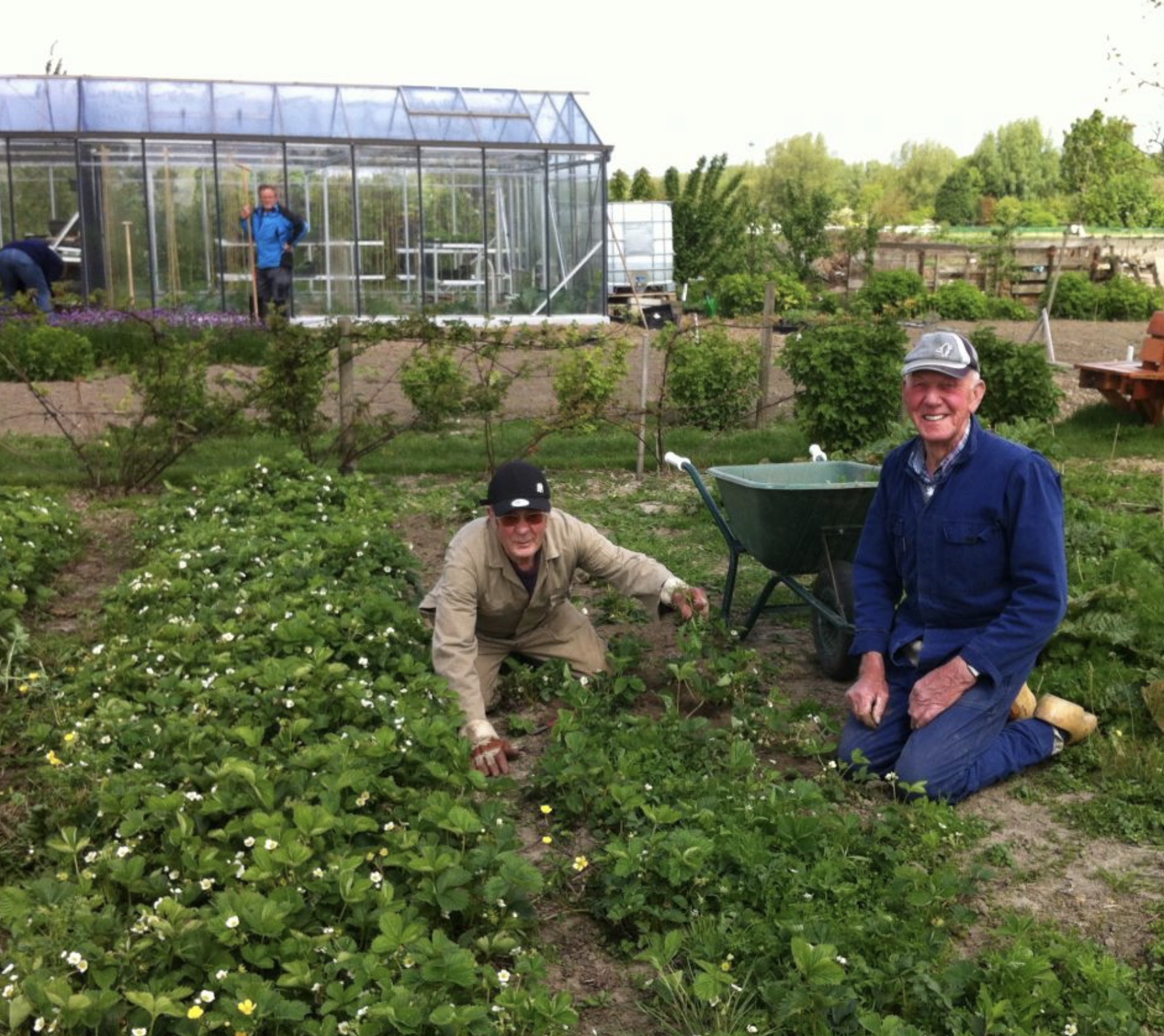
DuTch People With Dementia Can Work on Farms
Boerderij Op Aarde is one of hundreds of Dutch “care farms” operated by people facing an array of illnesses or challenges, either physical or mental. They provide meaningful work in agricultural settings with a simple philosophy: rather than design care around what people are no longer able to do, design it to leverage and emphasise what they can accomplish.
It’s an approach that research has shown holds many benefits. For people with dementia, who are often less physically active and more isolated, farm settings promote movement and social interaction. And care farms can have emotional benefits, too, giving participants a sense of purpose and of making a meaningful contribution.
“We don’t focus on what’s missing, but what is still left,” says Arjan Monteny, cofounder of Boerderij Op Aarde, “what is still possible to develop in everybody.”
Care farming started growing in popularity in the Netherlands in the late 1990s. According to Wageningen University researcher Jan Hassink, farms, squeezed financially as agricultural costs increased and food prices fell, were looking for ways to become more multifunctional. At the same time, a movement was emerging in the Netherlands to reduce the use of institutions, part of a growing recognition that people with disabilities had a right to be active in society.
A few decades on, care farming is well established in the Netherlands, and interest in the model for people with all kinds of disabilities is growing across Europe, in the U.S., and in many other countries, Hassink says. As an option for dementia care, it is a solution that grows more relevant with each passing year. Rates of dementia are projected to more than double worldwide by 2050. Yet how to best care for those people remains a question many countries are still grappling with.
At Boerderij Op Aarde, participants start every weekday morning discussing the day’s work. There’s no shortage of tasks: goats and pigs need feeding, gardens need tending, hot lunches need to be prepared. A weathered bench in the workshop might need to be repainted. The workers get to choose which duties they’ll take on — that’s important, Monteny says, because people with dementia don’t have many opportunities to make decisions in their lives.
“It’s a small question,” he says, “but it has a great meaning for the people.”
Source: ReasonsToBeCheerful
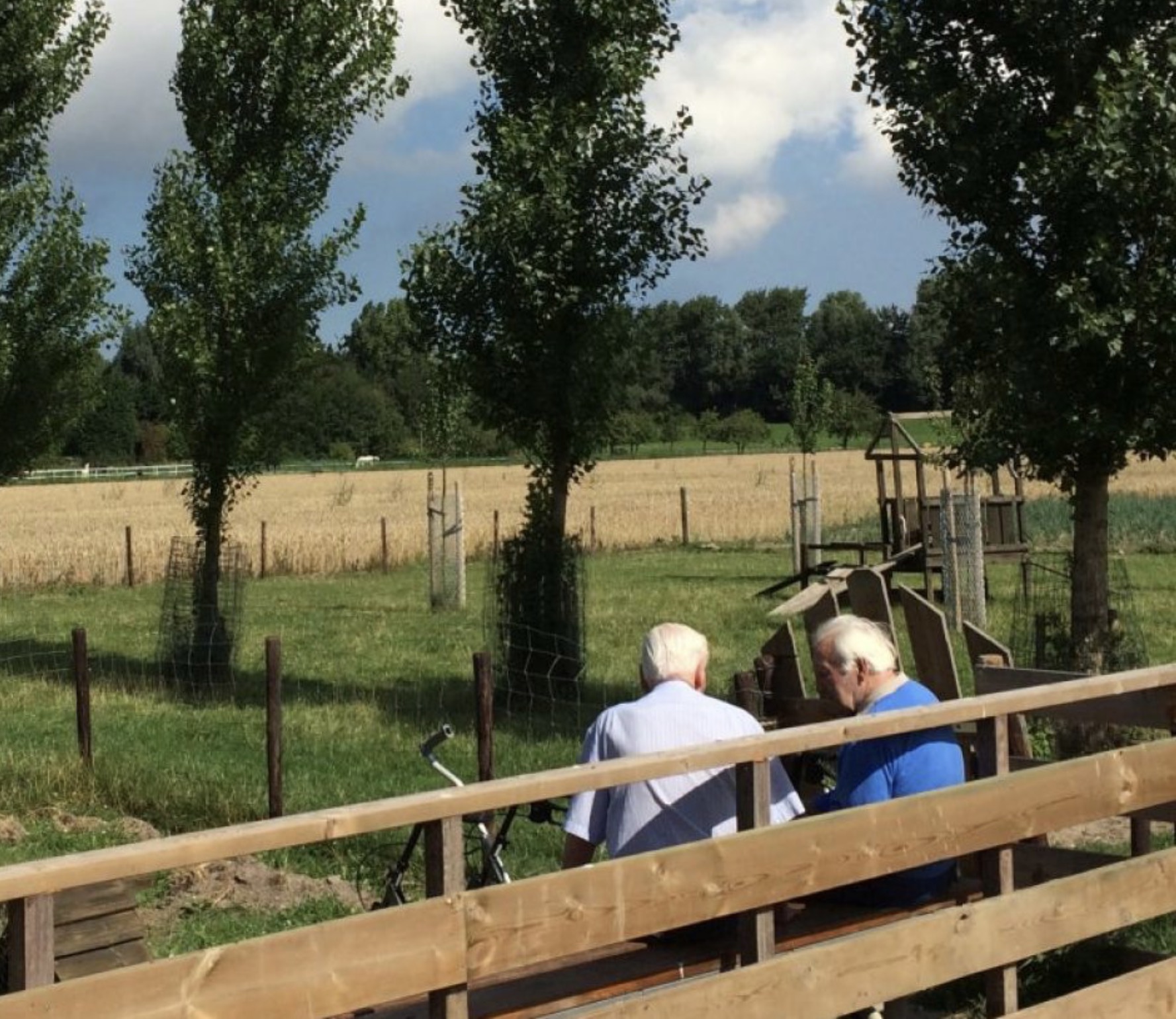
there are roughly 1,350 care farms in the Netherlands
Today, there are roughly 1,350 care farms in the Netherlands, serving a diverse range of people, according to Maarten Fischer, director of the Federation of Agriculture and Care. About 400 of these farms offer care for older people with dementia, he said, many in settings that also include participants with other needs.
“They’re focused on what needs to get done that day, which is what takes them out of their current disease process,” Fischer says.
The model is borne out by research. Studies in Norway and the Netherlands found that people with dementia at care farms tended to move more and participate in higher-intensity activities than those in traditional care, which can help with mobility in daily life and have a positive impact on cognition.
Dementia is often linked to social isolation, and care farms were found to boost social involvement, especially among those who wouldn’t opt for traditional assistance options. Spending time outdoors in nature, often part of a day on a care farm, can also improve well-being among people with dementia.
Farms are not only good for individuals, their families also benefit: studies find caregivers experience less guilt when their loved ones are supported by services they consider to be nurturing and fulfilling.
At other farms, people with dementia are grouped with people of other ages who have different conditions. That’s the case at the nonprofit care farm launched by Ronald de Vré in Badhoeve, near Amsterdam. Six days a week, the farm hosts groups that mix children and adults of all ages with a range of different conditions, including some dealing with substance abuse issues, and others with conditions like Parkinson’s Disease or dementia.
They look after gardens and animals, including ponies, donkeys, swans, sheep and some 60 chickens. With conditions like dementia, he says, “Your world is getting smaller, but here, you feel that your life’s still in the real world.”
Source: ReasonsToBeCheerful
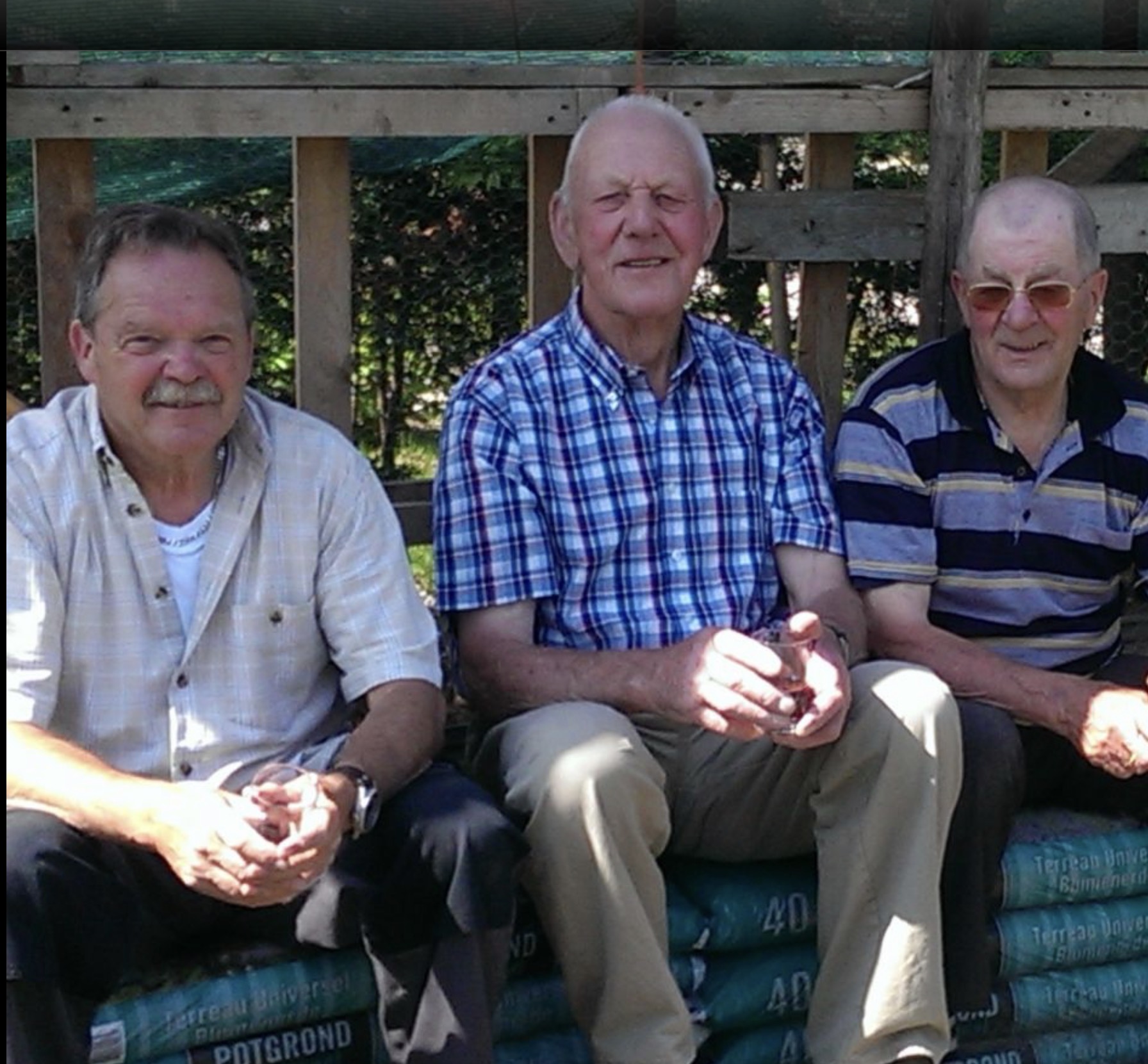
About a quarter of Holland’s care farms cater to people with dementia
Care farms began popping up in the Netherlands three decades ago. The idea behind the movement was to make farms multi-purpose, producing food but also meeting healthcare, recreation, conservation, and educational needs.
The healthcare part of the concept has worked so well that the number of care farms has exploded from 70 in the late 1990s to 1,400 today, said Simone de Bruin. A senior researcher at a government institute, de Bruin studies care for older people and innovation in healthcare and social services delivery.
About a quarter of Holland’s care farms cater to people with dementia. Intrigued by the concept, two countries with aging populations — Japan and South Korea — have sent delegations to check out the concept.
De Bruin, who spoke with Alzheimer’s News Today in a phone interview, said all care farms earn income by providing health and social services. Many also continue to generate revenue from agriculture.
Outdoor areas, gardens and animals at the non-commercial-agriculture farms are sources of therapy or daytime diversions for their various client groups, helping people relax, become healthier, and find purpose.
Source: AlzheimersNewsToday
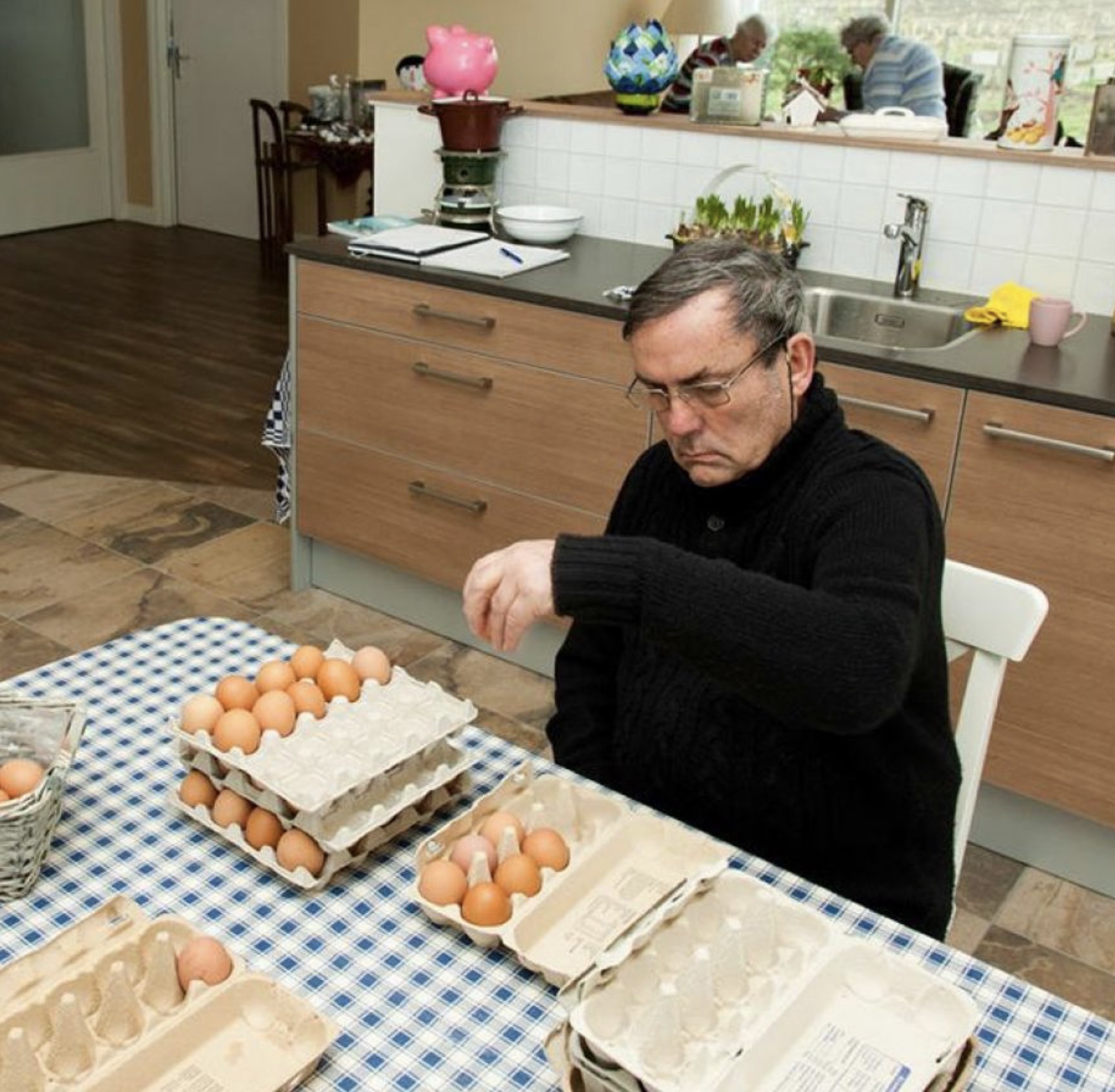
Many Dutch care farms are run by couples
The Netherlands’ healthcare and social services system provides adult day-care services to people with dementia, said de Bruin, who works for the Dutch National Institute for Public Health and the Environment (RIVM) in Bilthoven. Visits to care farms fall into this category, and the government reimburses the farms for this service.
“Most people with dementia who visit care farms live at home and go to the farms two to three days a week, arriving about 10 a.m. and leaving about 4 p.m.,” said de Bruin, who has a doctorate in public health from Wageningen University. A fraction reside on the few farms that offer 24-hour nursing home care, she added.
Many care farms are run by couples, with the husband overseeing the agricultural side and the wife the healthcare side, de Bruin said.
“Not only are people with dementia more active at care farms, but the farms stimulate social interaction and meaning in life,” de Bruin said. “Compared with traditional long-term care institutions, we see people at care farms participating more often in both domestic and outdoor activities, and spending less time on passive or purposeless activities.
“They tell us the farms make them feel like they’re still contributing to society.”
Source: AlzheimersNewsToday
